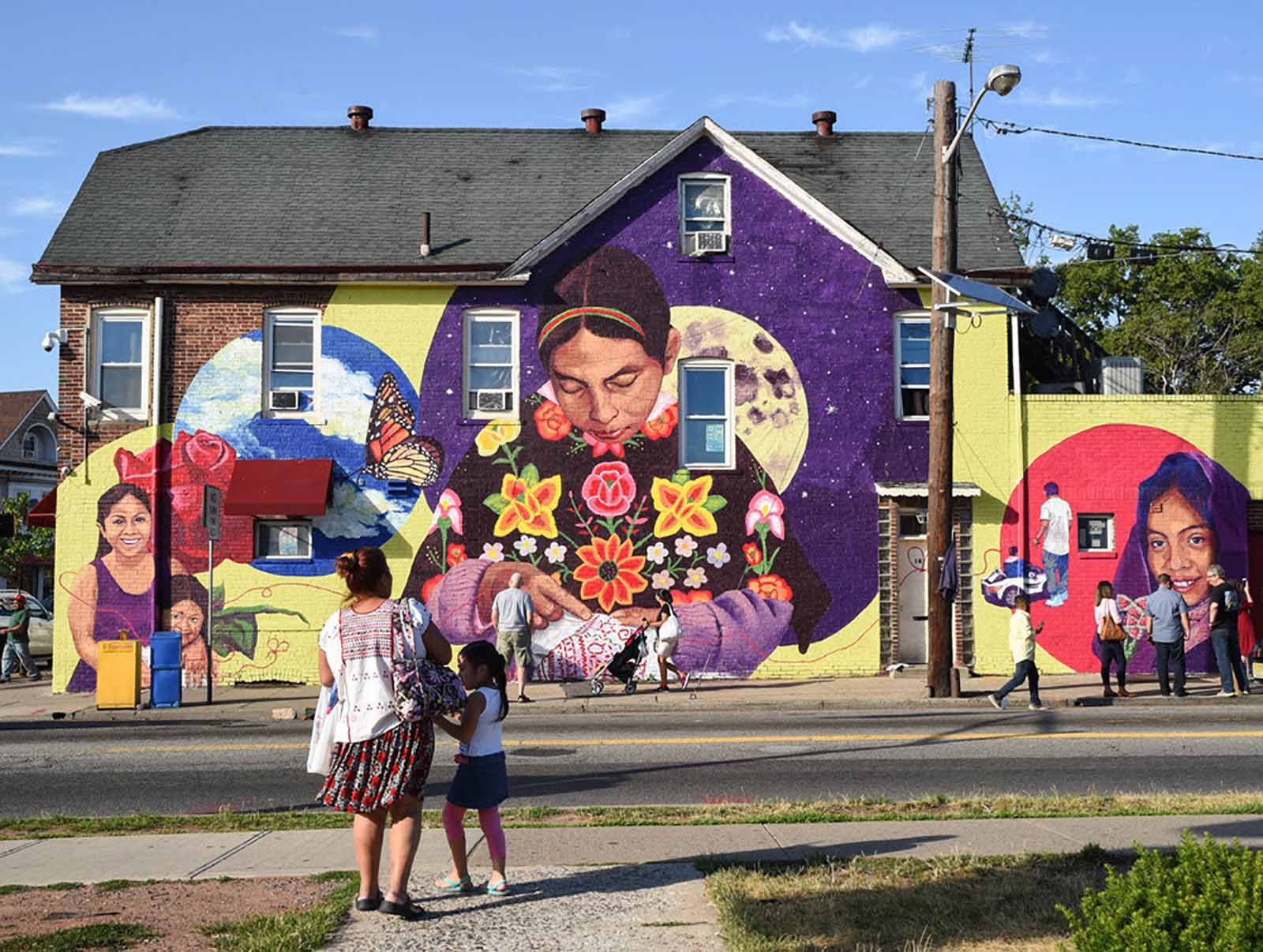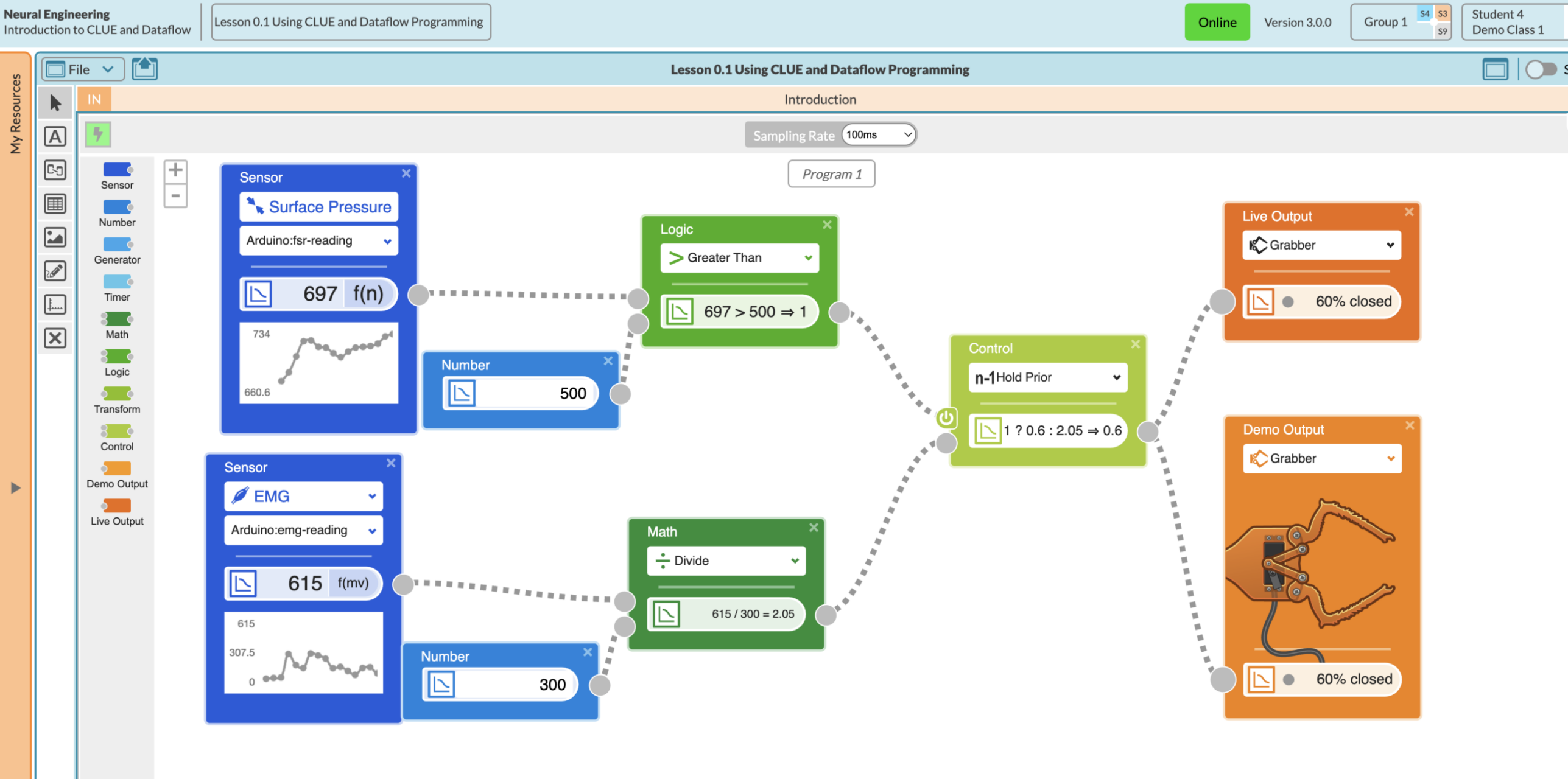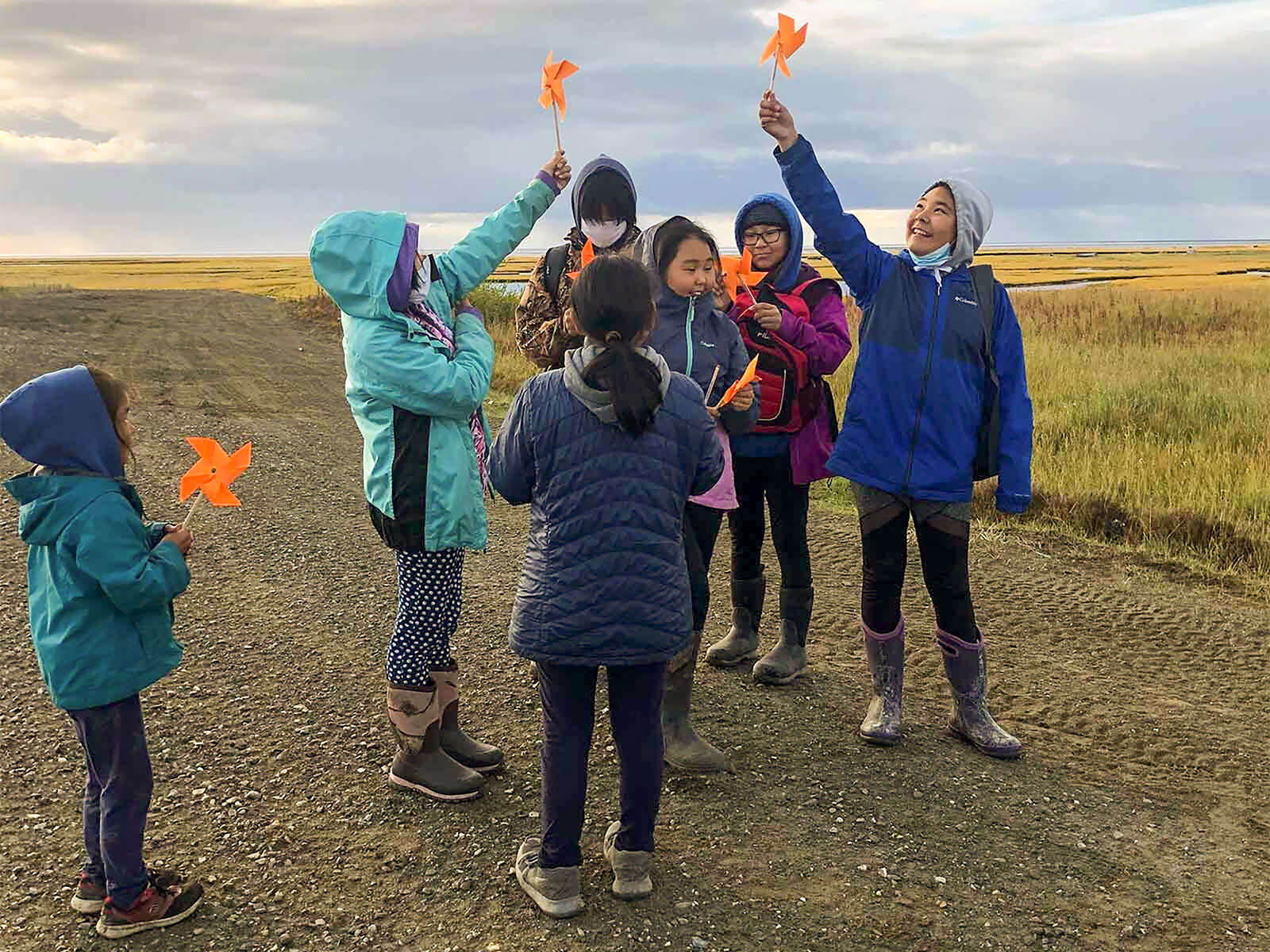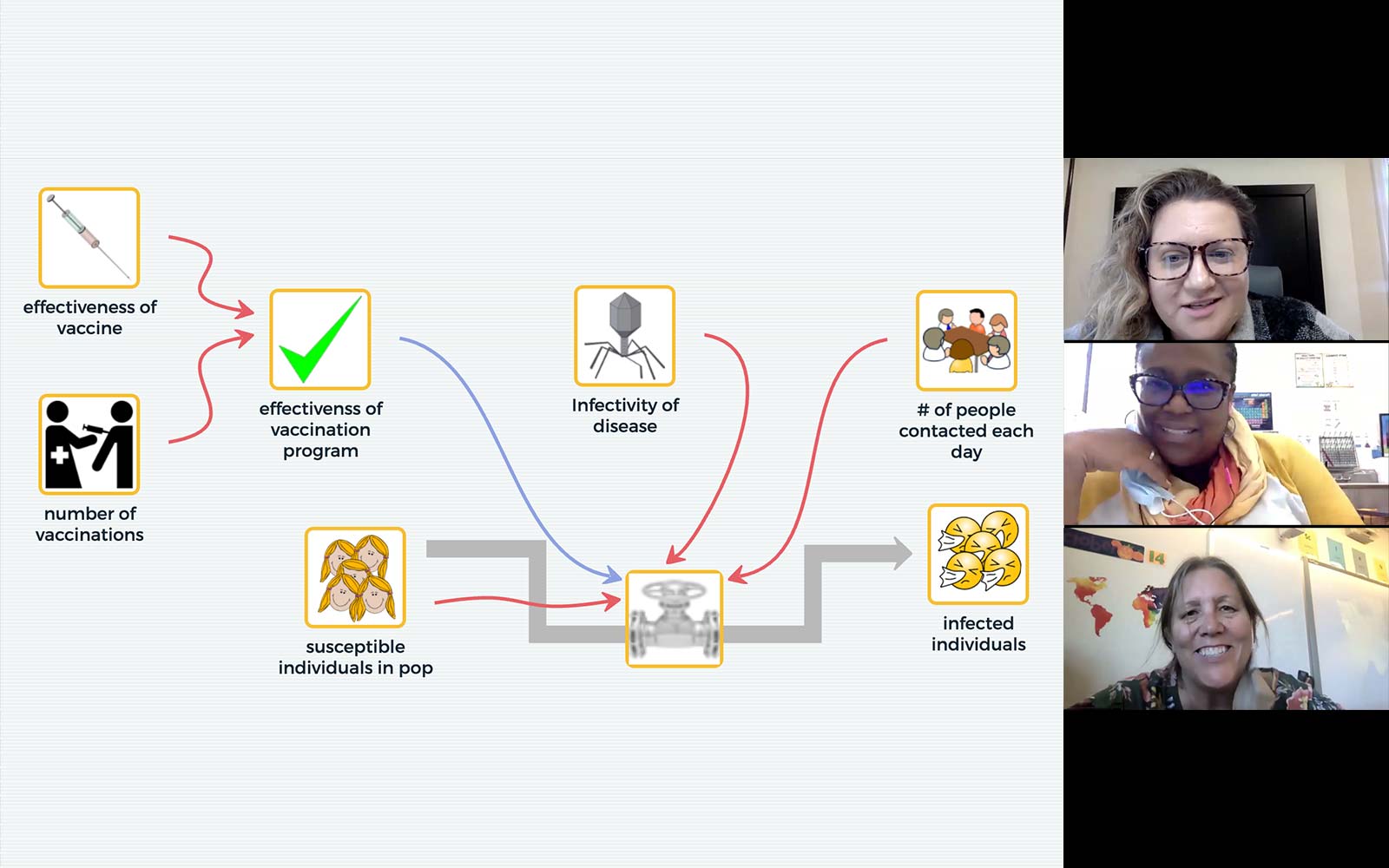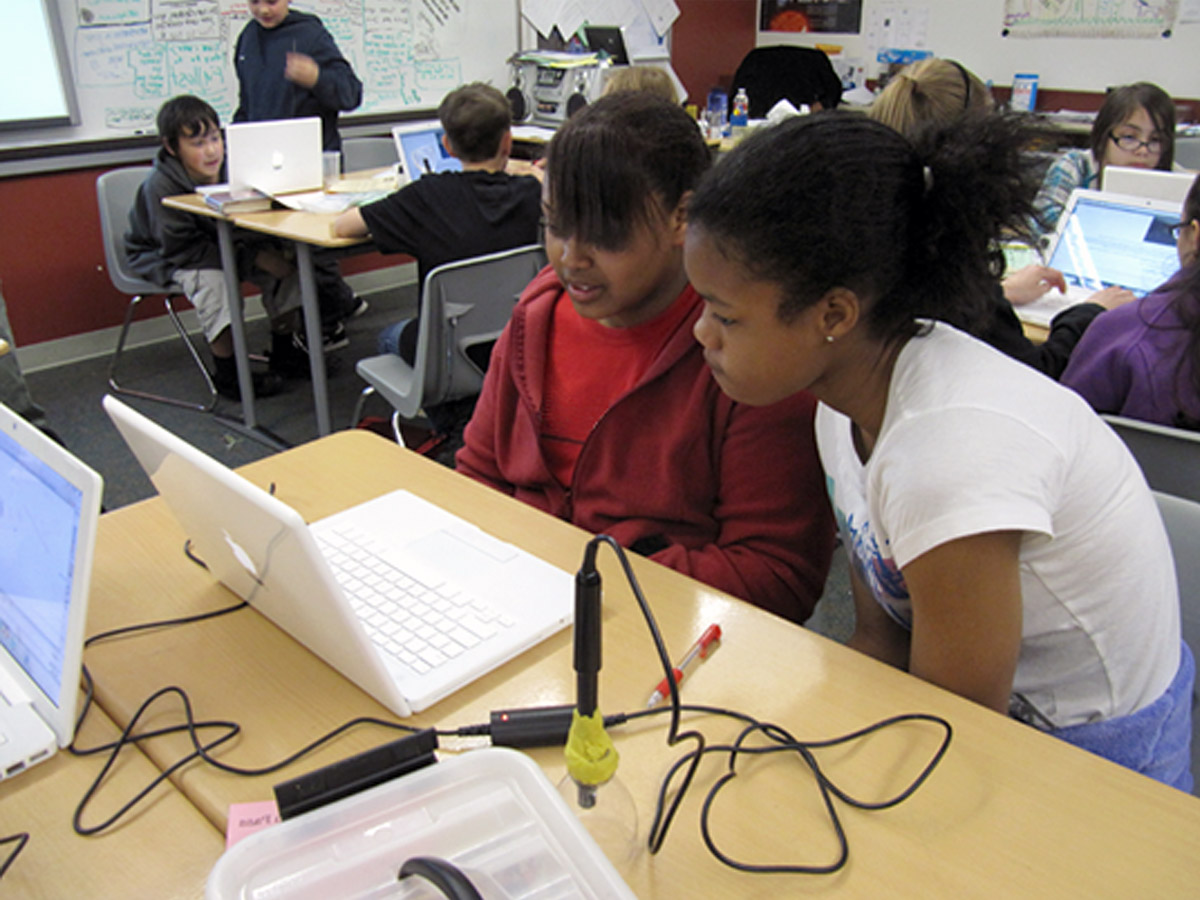Bio4Community
Importance
Equity remains an elusive goal in science education despite decades of reform efforts. Minoritized groups continue to be underrepresented in STEM careers, and their voices are routinely unheard in public conversations on environmental and health injustices. Minoritized youth who perform well in science still may not see themselves as belonging in science or see the relevance of science to their community. There is a critical and unaddressed underlying science identity gap.
In school, students’ cultural funds of knowledge often go unattended and their thinking about what matters in science is sidelined. Additionally, minoritized students often experience science as outsiders. For example, images and drawings of the human body typically depict the facial bone structure and bodies of fit, white males.
The Fostering Deep Learning, Identity, and Agency: Minoritized Students Learning Biology in Personal and Community-Relevant Contexts (or Bio4Community) project seeks to address these challenges by engaging middle school students in an inquiry-based biology learning environment where they develop their ideas and decide what is relevant and what counts as “valid” knowledge.
The Concord Consortium, Rutgers University, and the University of North Carolina Greensboro are partnering with middle school students and teachers from a diverse, largely Latinx neighborhood in New Brunswick, New Jersey. They are place-based experts, assisting project researchers and curriculum developers with identifying a relevant health issue in their community, surfacing thoughts, reactions, and questions for exploration in a life sciences curricular unit, and giving feedback on the developing software and biology simulations. We will also work in the teachers’ seventh grade classrooms to pilot the unit, obtaining further input and feedback on the curricular materials and software.
Research
Examining the intersection of science identity, personal agency in using science to benefit oneself and one’s local community, and conceptual understanding of disciplinary core ideas and practices is critical to develop practical and effective learning environments. Working with middle school students and teachers as co-designers of a curriculum unit and implementing the unit in their science classrooms, we will investigate how best to support learning and shed light on the conditions and factors necessary for broadening participation in STEM in ways that build students’ science identities, understandings, and knowledge they can use in real-world context.
Our research is guided by the following questions:
- How do designs that combine consequential community-based learning and epistemic agency afford and constrain students’ understanding of disciplinary core ideas and practices, epistemic agency, and the development of students’ science-linked identities?
- What elements of the curricular design are necessary, and which are contingent, in terms of supporting students’ development of science-linked identities, epistemic perspectives, and understandings of disciplinary core ideas and practices?
Publications
- The Concord Consortium (2022). Teacher Innovator Interview: Jessica Sudah. @Concord, 26(2), 15.
- Reichsman, F., & Haavind, S. (2021). Partnering with seventh graders to design a community-based life science curriculum unit. @Concord, 25(2), 10–11.
